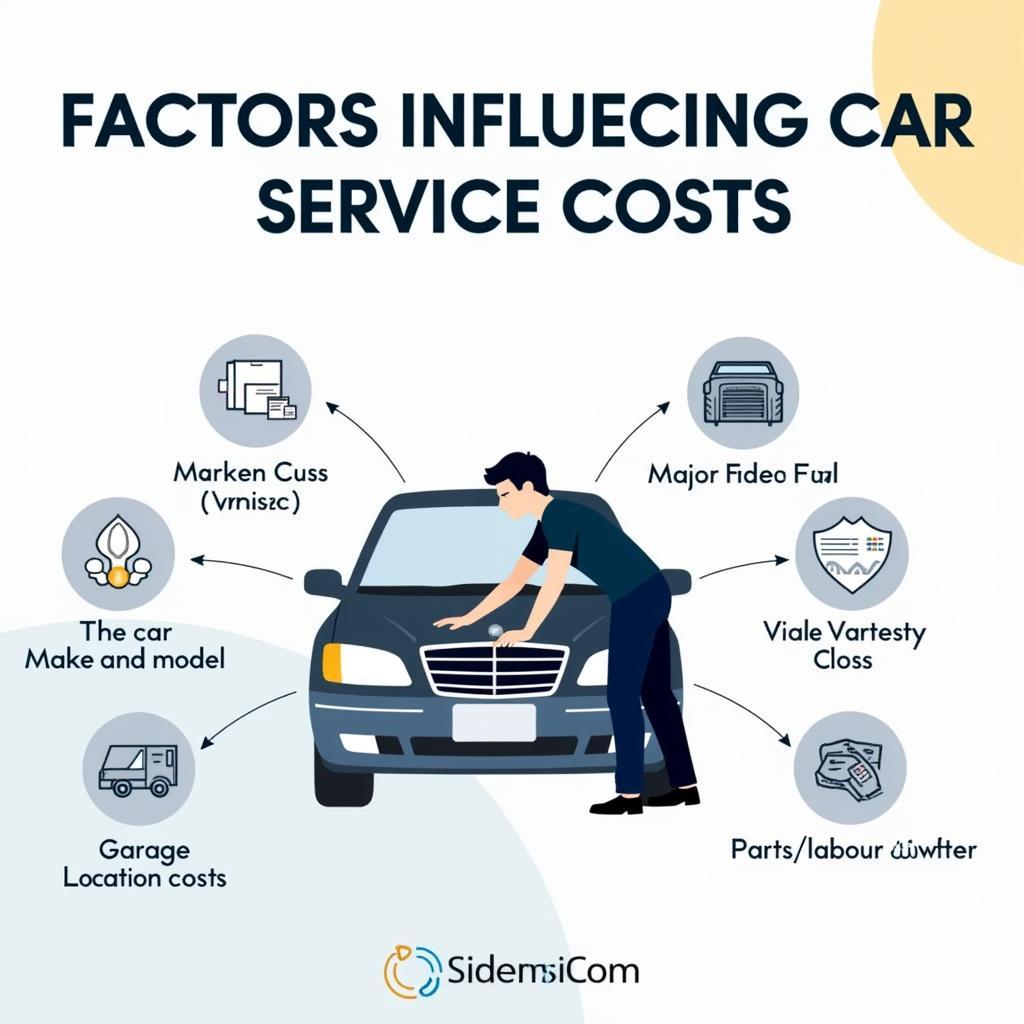Do Used Car Lenders Require Vehicle Service Contracts?
Do Used Car Lenders Require Vehicle Service Contracts? This is a common question for those financing a used vehicle. While not always mandatory, understanding the nuances of vehicle service contracts (VSCs), sometimes called extended warranties, and their relationship with used car financing is crucial. Let’s delve into the specifics.
Understanding the Role of Vehicle Service Contracts in Used Car Financing
Vehicle service contracts offer protection against unexpected repair costs, providing peace of mind, especially when purchasing a used car. Lenders sometimes encourage, but rarely require, VSCs for used cars. Their primary concern is protecting their investment—the vehicle. A VSC can minimize the risk of a borrower defaulting on their loan due to costly repairs, making the loan more secure.
Why Lenders Might Suggest a Vehicle Service Contract
While a lender’s primary goal isn’t to sell you a VSC, they might suggest it for several reasons:
- Reduced Loan Risk: A VSC can mitigate the risk of a borrower defaulting on their loan due to expensive repairs. If a major component fails, the VSC can cover the costs, ensuring the borrower can continue making payments.
- Protection for the Collateral: The vehicle itself serves as collateral for the loan. A VSC helps maintain the vehicle’s value and functionality, protecting the lender’s investment.
- Improved Borrower Financial Stability: By covering unexpected repair costs, a VSC can help borrowers avoid financial strain and maintain their ability to repay the loan.
Are Vehicle Service Contracts Always Necessary?
No, used car lenders typically don’t require VSCs. However, they might strongly recommend them, especially for older or higher-mileage vehicles. The decision ultimately rests with the borrower. Consider the following factors:
- Vehicle Age and Mileage: Older, high-mileage vehicles are statistically more prone to breakdowns, making a VSC potentially more valuable.
- Existing Manufacturer Warranty: If the used vehicle is still covered by a manufacturer’s warranty, a VSC might be redundant.
- Personal Financial Situation: Can you comfortably afford unexpected repair costs without a VSC?
- Cost of the VSC: Weigh the cost of the VSC against the potential repair costs it might cover.
Evaluating the Value of a Vehicle Service Contract
A VSC can be a worthwhile investment, but it’s essential to evaluate the specific contract carefully:
- Coverage: What components are covered? Are there any exclusions?
- Deductible: What is your out-of-pocket expense for covered repairs?
- Term and Mileage Limits: How long is the contract valid? What is the mileage limit?
- Transferability: Can the VSC be transferred to a new owner if you sell the vehicle?
“A well-chosen VSC can provide significant peace of mind, especially when financing a used car,” says John Davies, Senior Automotive Finance Advisor at Premier Auto Loans. “It’s not a one-size-fits-all solution, so it’s crucial to evaluate your individual needs and the terms of the contract.”
Negotiating with Lenders
Remember, a VSC is typically optional. You can negotiate with the lender. If you decline a VSC, they might adjust the loan terms, such as a slightly higher interest rate.
Making an Informed Decision
Ultimately, the decision to purchase a VSC rests with you. Carefully weigh the pros and cons, consider your financial situation, and research reputable VSC providers. Don’t be pressured into purchasing a VSC if you don’t feel it’s necessary or beneficial.
“Don’t hesitate to ask questions and compare different VSC options,” advises Maria Sanchez, Certified Mechanic and Automotive Consultant. “A thorough understanding of the contract’s terms is crucial before making a decision.”
Conclusion: Do Used Car Lenders Require Vehicle Service Contracts?
While used car lenders typically don’t require vehicle service contracts, they can be a valuable addition to your financing plan. By carefully considering your individual needs, the vehicle’s condition, and the terms of the contract, you can make an informed decision about whether a VSC is right for you.
FAQ
- What is a vehicle service contract?
- Are extended warranties and vehicle service contracts the same?
- How much does a VSC typically cost?
- What are the benefits of a VSC?
- Can I cancel a VSC?
- Are there different levels of VSC coverage?
- Can I purchase a VSC after I’ve already financed the car?
For further assistance, please contact us via WhatsApp: +1(641)206-8880, Email: [email protected], or visit our office at 456 Oak Avenue, Miami, FL 33101, USA. Our customer service team is available 24/7.

